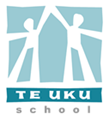Curriculum Information
Student Behaviour Management Plan
GOAL: Through PB4L and our Values, to maintain a safe, respectful learning environment for all students and staff.
We believe:
- Effective behaviour management is essential to sustaining a learning environment in which everyone’s rights and responsibilities are addressed.
- Behaviour learning is an important and integral part of the school curriculum.
- Behaviour learning requires children to actively reflect on both appropriate and inappropriate behaviours.
We know that:
- Behaviour is learned
- Behaviour is conditioned
- Behaviour is purposeful
- Behaviour is chosen
- Behaviour communicates information about needs
- Behaviour can be the result of BDS (Bad Day Syndrome) caused by tiredness, friendship hassles, hunger, sickness, loss, etc
- Behaviour can be changed
- Behaviour is taught
We expect ALL students to behave appropriately. We know that we have to support children to maintain consistently appropriate behaviour. Therefore, our behaviour management practices are focused on:
- Preventing and minimising inappropriate behaviours
- Encouraging appropriate behaviours
- Teaching appropriate behaviours
- Repairing and rebuilding relationships when things have gone wrong
- Applying consequences for inappropriate behaviours (either immediately or after consultation with other teachers/parents)
Supporting Behaviour Learning at Te Uku School
To help students to manage their own behaviour and to develop a consistent approach to managing student behaviour, the following are integrated into our school-wide learning programmes:
Our Values - The Five Rs (5Rs):
The 5Rs have been developed to enable students and teachers to live, learn, work and contribute as active members of this community. These are not separate or stand-alone. They are the key to learning in every learning area. Opportunities to develop our values occur in curricular and co-curricular experiences. The descriptors are not fixed and require ongoing reflection and change to meet the needs of the students. Our values are:
- Resilience - kia manawaroa
- Responsibility - kia haepapa
- Relationships - kia honotahi, whanaungatanga
- Reflectiveness - kia whaiwhakaaro
- Resourcefulness- kia pāuaua
Restorative Practices
Restorative practices are based on the philosophy and principles of restorative justice:
- Viewing wrongdoing through a relational lens – understanding that harm has been done to people and relationships
- Understanding that when such harm is done, it creates obligations and liabilities
- Focusing on repairing the harm and making things right.
This means that when things go wrong, we as teachers work in the following way:
- Involve those responsible for and those affected by the behaviour in solving the problem
- Provide high levels of support for all parties, whether perpetrators or those affected
- Address the needs of all those involved in harmful situations
- Provide strong messages and reminders about what behaviours are acceptable and unacceptable.
Reviewing the Quality of Education at Te Uku School
The reviewing of the quality of education in our school is done regularly and in different ways – both externally and internally.
External Reviews
ERO: At a national level, there is an Education Review Office (ERO) which undertakes reviews of all schools in New Zealand. ERO has 2 main roles: school accountability (checking on compliance matters and school’s effectiveness in relation to its goals and standards); school improvement (checking on the quality of the school’s own approach to on-going self-review and its capacity for change).
Te Uku School’s April 2014 ERO report can be accessed from the School Office or www.ero.govt.nz. The next ERO review is due in 2018/19.
Ministry of Education: Every year, our school completes an Annual Report (including a Financial Report) and submits it to the MoE. Every school in NZ is required to report to the MoE on at least one Annual Goal that is linked to student achievement.
Internal Reviews
Community: We invite our community to complete a biannual questionnaire in October on an even year. This information is used to plan for the following year. From time to time, parents are rung by the principal and asked for feedback about the quality of education currently being provided to their child/ren. Parents/caregivers are welcome to make contact with the principal and/or teachers with any concerns. The teaching staff report trends in student achievement on a regular basis to the BoT. This information is available to parents (either by attending BoT meetings or by speaking with the principal).
Students: Students are encouraged to meet with their teacher or principal about any school improvement ideas. Students are also encouraged to share their concerns about any school matters with their teacher or with the principal. As teachers, we consistently work with students to use student achievement data to make plans for improving learning. Often this is done in consultation with families.
Staff: All staff members have an Annual Performance Review. The focus is on improving capability in the role which they fulfil. Teaching and learning programmes are reviewed on an ongoing basis.
